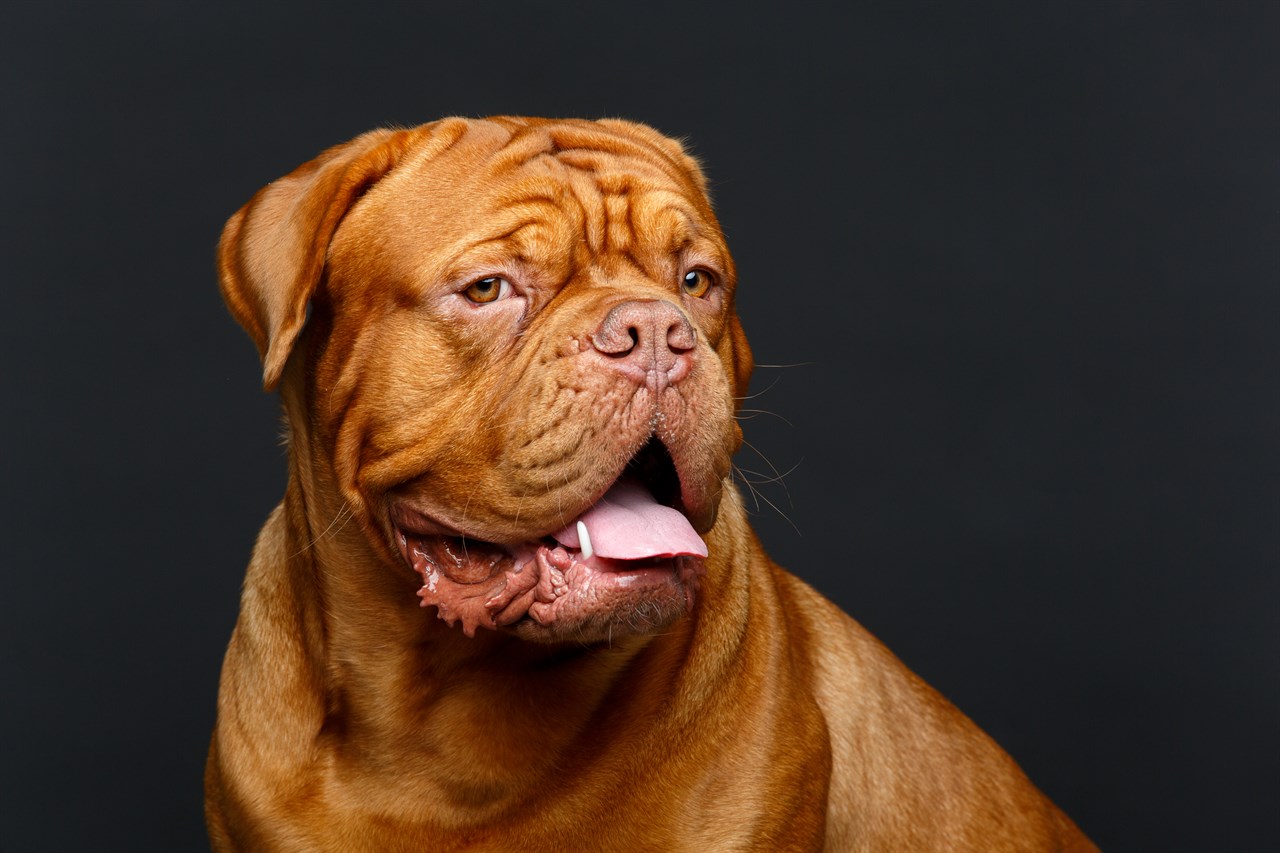Feeding Habits and Food Requirements of the Dogue de Bordeaux

Proper nutrition is fundamental to the health and well-being of the Dogue de Bordeaux, just as it is for any dog breed. Understanding their feeding habits and food requirements will help ensure your canine companion receives the right nutrition to thrive.
Age-Appropriate Nutrition:
- Puppy Stage: During the puppy stage (up to around 12-18 months), your Dogue de Bordeaux will have higher energy and growth requirements. Feeding a high-quality puppy food formulated for large breeds is essential for proper development.
- Adult Stage: Once they reach adulthood, typically around 18 months, transition to an adult dog food. Look for formulations that maintain a healthy weight and meet their specific needs.
- Senior Stage: As your Dogue de Bordeaux enters their senior years, usually around 7-8 years old, consider switching to a senior dog food. These formulations are tailored to the needs of aging dogs, including joint support and reduced calorie content.
Portion Control:
- Avoid Overfeeding: Dogue de Bordeaux dogs have a tendency to gain weight, so it's important to avoid overfeeding. Follow the feeding guidelines provided on the dog food packaging, but also consider your dog's activity level and individual metabolism.
- Divide Meals: Feeding two or three smaller meals per day, rather than one large meal, can help prevent overeating and aid digestion.
Protein and Fat Content:
- Balanced Protein: Look for dog foods with a balanced protein content. It should be derived from high-quality sources such as chicken, beef, or fish.
- Moderate Fat: A moderate fat content supports energy levels without contributing to excessive weight gain.
Avoid Fillers:
- Grain-Free or Grains: Some Dogue de Bordeaux dogs may have sensitivities to certain grains, so you can opt for grain-free dog food. However, not all grains are problematic, and some dogs do well with grain-inclusive options.
- Avoid Excessive Fillers: Regardless of grain content, avoid dog foods with excessive fillers, artificial additives, or by-products.
Hydration:
Ensure your Dogue de Bordeaux has access to clean, fresh water at all times. Proper hydration is essential for overall health.
Special Dietary Considerations:
Some Dogue de Bordeaux dogs may have food allergies or sensitivities. If you suspect this, work with your veterinarian to identify and address any dietary issues.
If your dog has specific health concerns or dietary requirements, consult with your vet for a specialized diet plan.
Treats and Snacks:
Use treats and snacks in moderation, as they can contribute to weight gain if given excessively.
Regular Feeding Schedule:
Establish a consistent feeding schedule to help with potty training and digestion. Feed your Dogue de Bordeaux at the same times each day.
Regular Check-ups:
Regular veterinary check-ups are important to monitor your dog's weight and overall health. Your vet can recommend adjustments to their diet if necessary.
Avoid Feeding Human Food:
Avoid feeding your Dogue de Bordeaux table scraps or human food, as some human foods can be toxic to dogs.
In conclusion, providing your Dogue de Bordeaux with a balanced and nutritious diet tailored to their life stage and individual needs is crucial for their health and longevity. Remember that dietary requirements may vary from one dog to another, so consulting with your veterinarian for personalized guidance is always a wise choice.
Dogue De Bordeaux puppies for sale
- Find Dogue De Bordeaux puppies for sale in ACT
- Find Dogue De Bordeaux puppies for sale in NSW
- Find Dogue De Bordeaux puppies for sale in NT
- Find Dogue De Bordeaux puppies for sale in QLD
- Find Dogue De Bordeaux puppies for sale in SA
- Find Dogue De Bordeaux puppies for sale in TAS
- Find Dogue De Bordeaux puppies for sale in VIC
- Find Dogue De Bordeaux puppies for sale in WA